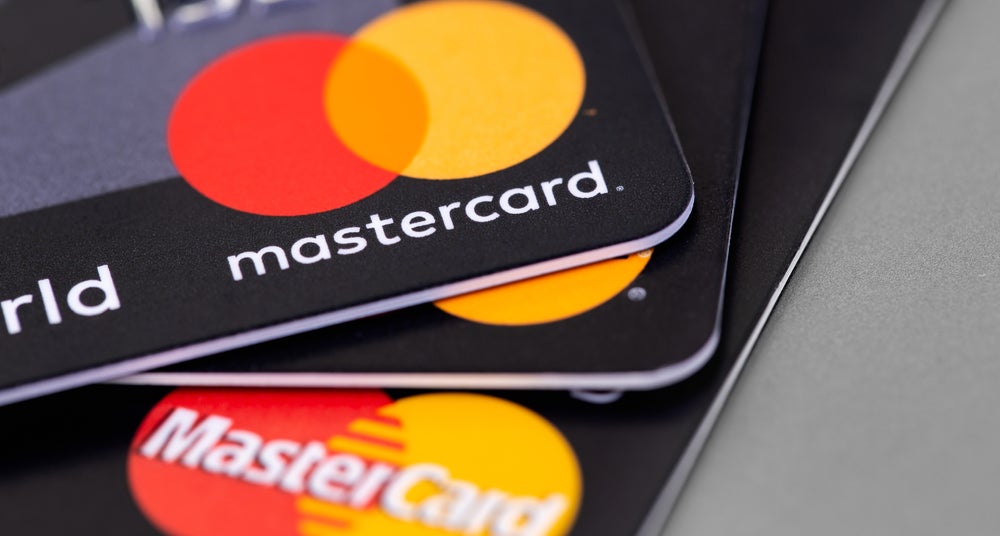Largely absent from the prepaid card market,
multinational banks have left the industry dominated by smaller
issuers. Brad Henson, president of Meta Payment Systems, speaks to
CI’s John Hill about what this could mean for the future and his
view of where prepaid is headed
Meta Payment Systems (MPS) is one of the largest prepaid card
players in the US, although most would not have guessed it. A
division of the Storm Lake, Iowa bank MetaBank, MPS operates
primarily as a sponsor for other card programmes, and is involved
to varying extents with around 2,300 different prepaid products.
MPS has issued over 100 million cards since its inception in 2004,
and despite the current climate has managed to post standout
figures in its recent results.
Brad Hanson, president of MPS, spoke to CI about the company’s
current focus on the prepaid card market, where he thinks the
industry is heading and how the high price of some prepaid cards is
stunting growth.
CI: How would you say MPS fits into the prepaid
card market at the moment?
BH: We have over 2,300 programmes in the market in the US, and they
span all areas of prepaid. We haven’t focused on government cards,
but other than that we have payroll, general-purpose reloadable
cards, rebate incentive cards, gift cards, healthcare and benefits,
pretty much all sectors. We started in May 2004 and by the start of
May this year we had issued over 100 million cards.
Initially we sponsored other people’s programmes, but now we’ve
built our own products that we can deliver to key partners. We
manage programmes, but always work in collaboration with our
partners, so for example with some cards we’ll do a lot, including
the marketing and distribution, while with other partners we’re
just the bank behind the programme. We can do as little or as much
as a partner wants.
How well do you really know your competitors?
Access the most comprehensive Company Profiles on the market, powered by GlobalData. Save hours of research. Gain competitive edge.

Thank you!
Your download email will arrive shortly
Not ready to buy yet? Download a free sample
We are confident about the unique quality of our Company Profiles. However, we want you to make the most beneficial decision for your business, so we offer a free sample that you can download by submitting the below form
By GlobalDataWe’re primarily based in the US, although we are looking at and
researching how we might move into other markets including Europe,
but we haven’t made any final decisions as to how or when. We’re
just doing our preliminary research there.
CI: As well as the core prepaid business, you’ve moved into
credit products and ATM sponsorship. Does this mean you are
looking to branch out from prepaid, or will it remain your focus?
How successful has your iAdvance credit product
been?
BH: Our ATM business is based on a sponsorship system. People place
ATMs in various locations, in retail and other stores for example,
and when they need a bank to give them access to the various ATM
networks, they use us. In the US we have over 50 percent market
share of what we call the non-bank ATM network. We view ourselves
as a payment company and as a bank. We also have some new credit
products that are linked up to prepaid cards. Our iAdvance is a
card with a separate line of credit but it’s only distributed on a
prepaid card that has direct deposit associated with it.
iAdvance has been a very successful product, however we’ve been
very deliberate in our approach to launching and distributing it.
We’ve been very controlled about our launch, making modifications
to the programmes, to the underwriting, to all those sorts of
things and right now it’s running very well. It has good adoption,
the loss rates are terrific, the performance of the portfolio is
terrific, and we’re trying to step that up going forward. At the
moment it is only in the US, although that is one of the things
were looking at, how we might extend it into other countries.
CI: Do you offer many closed-loop cards? Are you looking to move
into that area, or that of government prepaid
programmes?
BH: We offer very few closed-loop cards, and even the cards we do
offer are running on Visa and MasterCard systems – they’re kind of
like private-label targeted purpose cards without the brands on
them, but still using those network rails. We don’t really get into
proprietary systems that are truly closed-loop and internal to a
business.
Government cards have been difficult here because there are a lot
of card possibilities but the government requirements are such that
it’s almost impossible to make any money from them, so it hasn’t
been something we’ve focused on. You put a lot of effort into the
RFPs (Request For Proposal – tendering for a contract) that the
government puts out, and then you don’t make any money out of it.
Although we do have partners that are interested, so we may do
something in collaboration with some of our larger partners, but
it’s not a focus of the bank itself.
CI: Are you looking to raise your profile with the mass
market?
BH: Within the industry, especially in the US today and even on
a broader scale due to Visa and MasterCard’s promotion, we’re doing
very well. I joke about us being like BASF, we’re the stuff that
makes the stuff you use great. I don’t think from a consumer
standpoint we’ve tried to develop our brand a lot and we may think
more about how we expand our brand, but more on an industry
specific basis, not on a consumer basis.
CI: What effects has current economic crisis had on the
market?
BH: I think most people feel like it’s helped in certain sectors –
for example both general-purpose reloadable card and debit cards
have picked up. Some people feel it’s because of the economy and
people trying to pay back their credit, and get more control of
their finances. I personally feel it’s probably on a dramatic
growth curve as the industry has evolved, and regardless of the
economy we’d be pretty close to the kind of growth we are seeing.
In other areas like gift cards, we haven’t seen much deterioration,
just slightly, and most of the deterioration has been in
closed-loop store cards, not in the open-loop cards that we offer,
so it’s pretty good. We’re still seeing dramatic growth and I think
the economy has helped, not hurt.
CI: How have you seen the market change since MPS started
in 2004?
BH: I think there’s been more clarity in a lot of areas in the US,
from a legislative perpective certainly, and a few things have
played through the courts. There is some key legislation still
rumbling around, but I think in general the Visa and MasterCard
rules, and their approach to prepaid, has matured a lot and there
has been clarity and direction from the systems. In general there
has been a better understanding of prepaid by corporations and
consumers and so in the US it continues to gain traction and pick
up and accelerate, because participants are starting to
understand how they can apply prepaid to specific categories better
than they did when we got started.
CI: Do you see the larger banks becoming involved more in
prepaid issuance?
BH: I really don’t. It’s still so small compared to their overall
debit and credit programmes, and in the US and even all over the
world, banks have so much to deal with right now, and this isn’t
something that’s going to change their balance sheets in the short
run. I think it’ll take more time and also the product has to be
something that creates a relationship for them and their consumers.
They don’t really approach it like we do, where our brand can sit
behind other people and facilitate their goals, so I think it’ll be
a much smaller play for the big banks than it is for someone like
us.
CI: What do you think the biggest obstacles to the prepaid
industry will be in next 12 months?
BH: It’s probably legislation and understanding. While in the US we
can uniformly distribute across the states, in Europe you have all
the different countries and you have to be able to figure out and
comply with their various different laws. Although things are
changing, which may make it easier for participants to enter the
market and create more competition, as well as instilling
understanding of the legislative and regulatory framework for each
location they deal in.
Also, I don’t think the current view of prepaid by many is what it
should be, and hopefully to that end it will start to be seen as
more of a financial product by the mass market, with consumers
hopefully feeling more comfortable about it over time and gaining a
better understanding of how it applies to them.
CI: As banks start to levy charges on more of their
products, perhaps bringing to an end the idea of free banking, do
you think there will be more opportunities for
prepaid?
BH: I do, I think people have to get that the problem with prepaid
is that it can be very expensive, especially in Europe. I saw a
programme in the UK that was £12.95 a month, and I just don’t see
how people are going to be spending that kind of money. You’re
talking about underserved people without big incomes taking a
significant part of their finances to support this product. I think
people are going to have to figure out how to get creative and how
to get these things to pay for themselves. Once we can get the
price right things will improve. Price has come down in the US, and
we even have one partner testing a free card. Wal-Mart has got a
card in the US that is $3 a month, which when you compare it to the
card I mentioned earlier is £2 versus £12. I think once you get
down in that range we’ll get some traction with consumers.
Meta Financial Group posts profit rise
Meta Financial Group (MFG), the holding company for MetaBank,
reported net income of $1.2 million for the second quarter of 2009
compared to $3 million for the same period last year. The results
included an after-tax gain of $1.8 million from the sale of its
MetaBank West Central bank subsidiary. Quarterly earnings were
primarily driven by a $21.5 million increase in fee revenue from
the Meta Payment Systems (MPS) division, a 187 percent increase
over the same period in 2008.
MPS’ net income in the second quarter of 2009 reached record levels
for any quarter, at $3.5 million. This compared to net income of
$2.2 million for the same period last year. MPS’ quarterly revenue
grew by 139 percent, from $15.2 million in 2008 to $36.4 million in
2009. Non-interest income for the quarter grew dramatically
from $11.5 million in fiscal 2008 to $33 million, or 187 percent,
in 2009. The growth, primarily in fees, was spread among managed
business programmes and to a lesser extent in credit and
sponsorship programmes.
Costs for the prepaid issuer more than doubled from the same period
in 2008, a result MPS says is due to heavy investment in programme
support costs as well as operational infrastructure and product
development. It also filed eight patents during the quarter (three
provisional and five non-provisional and international).
President and CEO for MFG, J. Tyler Haahr, commented: “Our
banking and MPS units performed as well as expected during the
quarter given the unsettled economic picture. Despite the economic
environment, our net interest margin expanded nicely and MPS had
its biggest quarter ever in both revenue and income. We believe
that the last half of the current fiscal year will benefit from a
more productive asset utilisation and additional emphasis on cost
control.”







